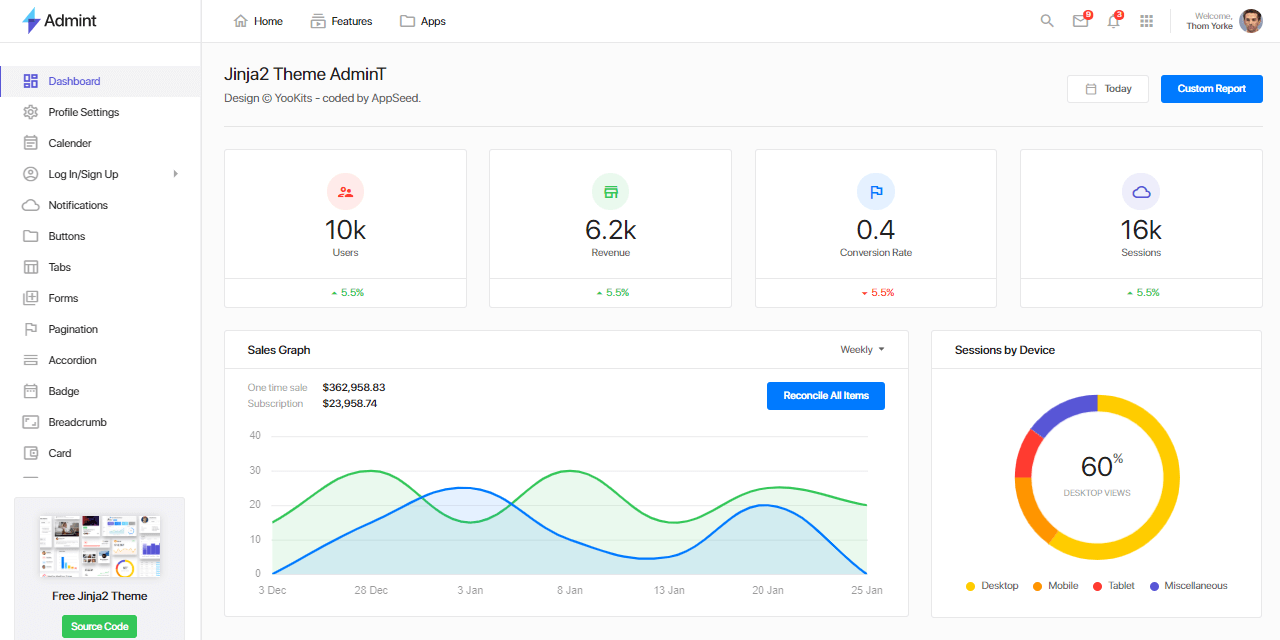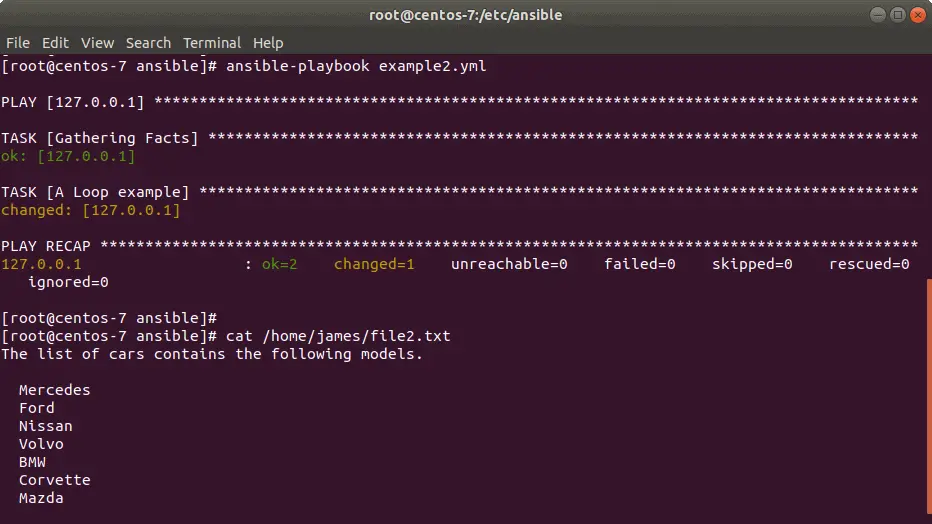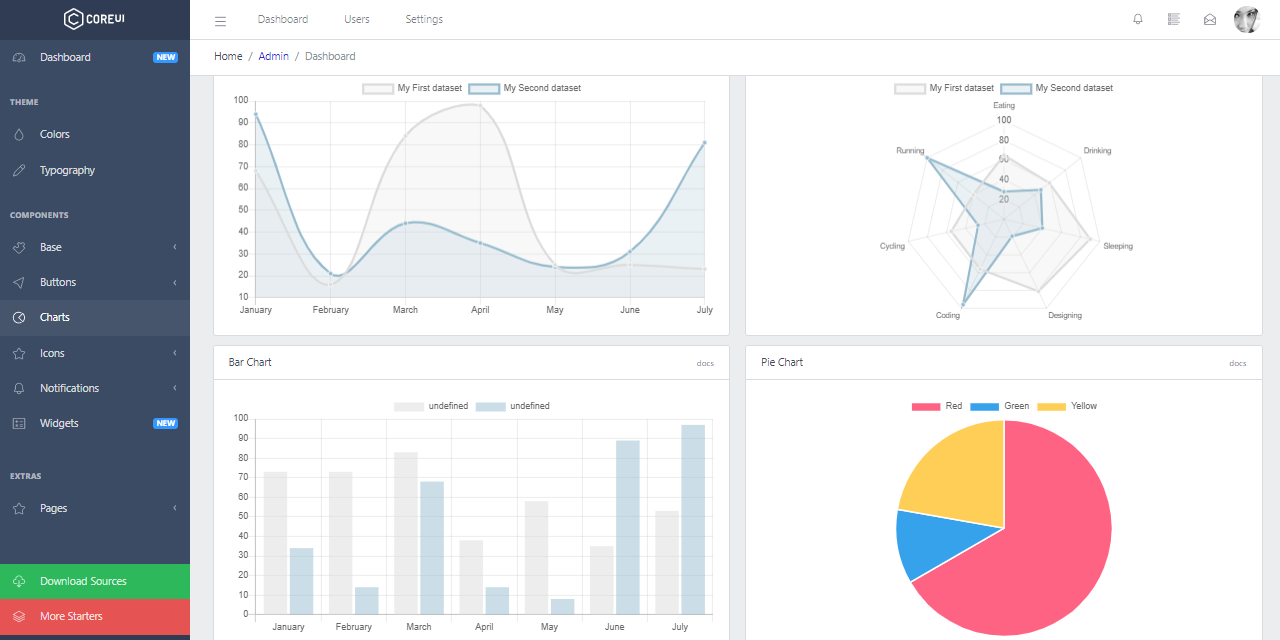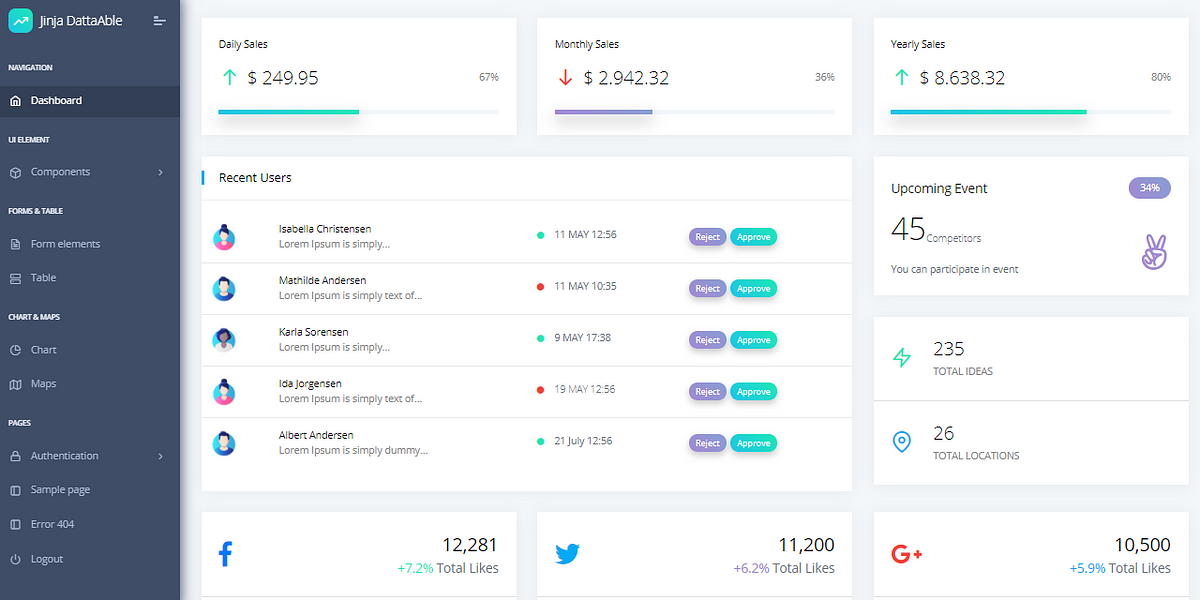Jinja2 Template Example
Jinja2 Template Example - Let’s start with an example. Base template → child templates. Web to try the examples in this tutorial, you should follow the entire rhce ansible tutorial series in the correct order. You can use it when rendering data to web pages. Web a template contains variables and/or expressions, which get replaced with values when a template is rendered; Web the following example shows the default configuration settings. Jinja2 is a modern and design friendly templating engine for python. Web template inheritance allows you to create building blocks that you can combine. You can vote up the ones you like or vote down the ones you don't. Web the following are 30 code examples of jinja2.template(). Web to try the examples in this tutorial, you should follow the entire rhce ansible tutorial series in the correct order. Web the following example shows the default configuration settings. Web quick example of ansible template module we are going to make some modifications in our previous shell script. You can vote up the ones you like or vote down. Web quick example of ansible template module we are going to make some modifications in our previous shell script. By using a template engine we can seperate display logic (html, css) from the actual python code. You can vote up the ones you like or vote down the ones you don't. Web we usually create follow this pattern while working. Web we usually create follow this pattern while working in jinja: __author__ = 'ibm' from flask import render_template from app import app @app.route('/') def hello_world(): Web jinja2 template engine framework example. Web a template contains variables and/or expressions, which get replaced with values when a template is rendered; Web the following are 30 code examples of jinja2.template(). Python template engine framework learning examples. Accessing variables in jinja2 ansible will look for jinja2 template files in your project directory or in a directory named templates under your project directory. An application developer can change the syntax. Web jinja2 is a template engine for python. Jinja2 is a modern and design friendly templating engine for python. Web the following are 30 code examples of jinja2.template(). Python template engine framework learning examples. Web for example here i have a playbook jinja2_temp_1.yml where i have defined a variable inside the playbook using vars:. An application developer can change the syntax. You can use it when rendering data to web pages. An application developer can change the syntax. Let’s start with an example. Web a template contains variables and/or expressions, which get replaced with values when a template is rendered; In this section we will be using a html as an example. Base template → child templates. Web we usually create follow this pattern while working in jinja: Web however, this example shows two important steps that you usually perform when using jinja: By using a template engine we can seperate display logic (html, css) from the actual python code. __author__ = 'ibm' from flask import render_template from app import app @app.route('/') def hello_world(): Web a template. By using a template engine we can seperate display logic (html, css) from the actual python code. Web quick example of ansible template module we are going to make some modifications in our previous shell script. Web we usually create follow this pattern while working in jinja: Web templates being a web framework, django needs a convenient way to generate. Web jinja2 is a template engine for python. Accessing variables in jinja2 ansible will look for jinja2 template files in your project directory or in a directory named templates under your project directory. Web the following are 30 code examples of jinja2.template(). In this section we will be using a html as an example. An application developer can change the. Web ansible uses jinja2 templating to enable dynamic expressions and access to variables and facts. You can use it when rendering data to web pages. For every link you visit, you want to show the data with the formatting. Web we usually create follow this pattern while working in jinja: Base template → child templates. Switching from other template engines. Accessing variables in jinja2 ansible will look for jinja2 template files in your project directory or in a directory named templates under your project directory. Web however, this example shows two important steps that you usually perform when using jinja: An application developer can change the syntax. Web powerful automatic html escaping system for xss prevention. You can vote up the ones you like or vote down the ones you don't. Compiles down to the optimal python code. Web the following are 30 code examples of jinja2.template(). An application developer can change the syntax. Web jinja2 is a template engine for python. Web a template contains variables and/or expressions, which get replaced with values when a template is rendered; You can use it when rendering data to web pages. Let’s start with an example. Web jinja simple example in the first example, we create a very simple template. Web we usually create follow this pattern while working in jinja: In this section we will be using a html as an example. Web jinja2 template engine framework example. Web quick example of ansible template module we are going to make some modifications in our previous shell script. Branch configuration using fortimanager jinja2 cli templates. __author__ = 'ibm' from flask import render_template from app import app @app.route('/') def hello_world():AdminLTE Jinja2 Template Codementor
19+ Templates Jinja2 PNG
Ansible Tutorial Ansible Jinja2 Templating LinuxTopic
Using Jinja2 Templates in Flask YouTube
GitHub appgenerator/jinjatemplate Jinja Template Free
Jinja2 Template Extensions YouTube
Jinja2 Template — OpenSource and Free Medium
Flask Jinja2 Example Insularmiseria
jinjatemplate · GitHub Topics · GitHub
Using Jinja2 Templates in Flask Variable Expressions YouTube
Related Post:








